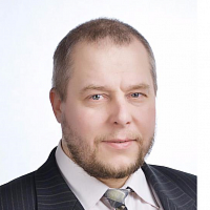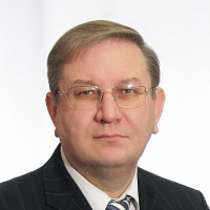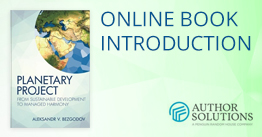Global management system reforming in conditions of a multipolar world


27/03/2017
The very fact of global management is still controversial nowadays. Many people doubt its existence. But they should pay attention to one important moment, that sounded in the speech of a former president of South Africa Thabo Mbeki. He said literally the following: «The global government system should change in such a ay so that it would be possible to achieve a goal of a sustainable development». As an official head of the state, Mr. Mbeki clearly understood what he was talking about. Usually presidents pay much attention to their speeches. That`s to say that the “sustainable development” depends on some kind ща global government system reformation/ The political aspect of this reformation won`t be touched in this article, it’s a separate complicated and very controversial topic. But the discussion of the economic aspect would be actual and interesting, especially because of the fact that there can be different points of view.
To reform means to change something. In case of the “global economy” one can speak only about one global aspect – about a balance between the labour and the capital. It`s it that, as in the beginning of the XX century, is rather skewed to the side of the capital, and nowadays – to the side of financial capital and the interests of the “golden billion”. The existing sag can be destroyed or by methods of the beginning of the XX century, or by the method described by Ovchinnikov in “Oak Roots”. Ovchinnikov has clearly described the method of British aristocracy, with the help of what it shares a part of their privileges in exchange for their interest remain with them. In case of a current situation it sounds – as a version – nearly like the following. We should raise the standard of living of billions of poor so that the “golden billion”, partly misplacing their additional income, would keep the access to the most of world`s income.
What would it mean in practice?
1. The golden billion should really decrease the consumption of energy no less than on 30 % from the current level (now the decrease of “about 20-30% to the 2030th” is declared, but this declaration is significantly behind schedule). To realize this we need :
abruptly decrease the rate while using cars up to the level of 2-3 l per 100 km
abruptly decrease the nonmanufacturing energy consumption including the electric energy consumption (housing services and utilities, cities and roads` illumination, spending on advertisement, overconsumption in the area of non-mass professions and copyrights, incomes from what lead to the overconsumption);
abruptly decrease the luxury items production (by means of higher taxation on such a consumption);
abruptly decrease the power-intensity of a production of all the consumer items (for example, the cars, where 90% of the price is a payment for “designers` ideas”), including the increasing of life span of house appliances up to 30-40 years.
2. The saved resources should be invested in life infrastructure of the latter (by living standards) billion – transport highways ( with minimal costs and maximum life span), water treatment systems, water pipe-lines, sewerage and treatment facilities, garbage processing plants, power stations (on local kinds of fuel) and power lines.
The cities should be built by states or people on their own. The launch of large-scale projects would allow us to:
Utilize the excess liquidity from the bank system of the developed Western countries;
Organize tens of billions of workplaces (in case of an average level of mechanization)
Make possible the launch of the system of building houses for a huge amount of people and bring it to the cities where the employment is supported by the production of basic commodities
Increase the burden of Western industrial enterprises since new industrial areas will require the equipment of new production facilities;
Increase the demand for skilled workers, which will cause an outflow of migrants from the West and reduce the unemployment rate of indigenous people in Europe and the United States;
Lead to an increase in the educational level in developing countries, which will affect the containment of population growth.
Here are the main thoughts about reforming only one economical aspect of global management that may lead the planetary economy (nowadays nobody argues that there is only one global economy on the planet) to the way of a more balanced development
By the way, something similar is done by United Arab Emirates in Somali. The first result of this work – one can hardly hear about the Somali pirates! There are no more their excesses on the world political agenda.
Further, if the projects of such reform will reach the level of a number of states, interstate associations, economic and political unions and associations, one should to think about the following issues:
What is the most real development of events in connection with the vector diversity of the world's economic and political forces;
What is the safest action plan for individual investors (up to investments in the amount of $ 50-70 billion) that could be "conditionally safe" in case of any development of the situation in the world (from the most peaceful variant to the most unfavorable for the whole planet);
How to build sufficiently secure development plans for individual countries and groups of countries (it is clear that this is necessary for the EU, the ESAEC and the SCO), or even large associations within the continent (Africa, Latin America, Southeast Asia).
Today, for many people it is clear that the period of the unipolar world has gone and there will be no return to it. The unipolar system was a kind of political monopoly, which, like any monopolist, transferred a number of its costs to customers in any volume that he could wish. But even the entire planet is not able to feed only 100 - 150 million of very wealthy members of the monopoly (including 20 - 30 thousand of multimillionaires). Moreover, the monopolist, the conditional "West", could not confirm its qualification in the management of the global planetary world, which is clearly evidenced by serious economic, political and military failures, which had led to the modern systemic crisis.
Unfortunately, nowadays neither China nor Russia has formed the basic ideological concepts that should form the basis of multipolarity. At the same time, there is already an understanding of the end of the period of Western political monopolism in the world, and there is still no intelligible language, including clearly articulated principles of the coming epoch of multipolarity. It is reasonable to assume that the new geopolitical centers will be China and Russia - perhaps even a single center. And this means that the matrix of multipolarity should be based on the fundamental principles on which the peoples of China and Russia are based in their social and historical existence. For the Middle Kingdom, the key image of the world view is the balance of forces, the formula of the eternal equilibrium of Yin and Yang. Through the prism of this principle, it is clear why China supports Russia, regarding it as a buffer zone and a tool for balancing the aggressive male origin (Yang) of the West and the plastic female principle (Yin) of the East, while being able to speak with the West in the West language, Force, and with the East - in the language of the East, finding compromises and having a focus on results outside the time frames.
For Russia, the concept of "Divine Justice" is the fundamental symbol of the archetypal matrix of national consciousness. (Russian people are still guided in life by such concepts as "truth", "justice", "balance in the relationships between people depending on the measure of work of each person and his abilities, given to him by God"). Today, representatives of philosophical thought in Russia are actively searching for an ideological position that would correspond to the coming era of a multipolar world.
If we return to the current situation, it is important to determine the following.
1. The general trend in the development of the world political and economic situation can be briefly characterized as a "lateral trend". This is due to the fact that the "costs of achieving results" begin (since the late 1990s) to significantly exceed the potential revenues from the expected ones.
Here is the example. The costs of the operation in Syria (currently - up to $ 350 billion in all types of expenses, including "cover operations" and "moral costs") are beginning to visibly exceed revenues from a possible gas supply in Qatar-Europe and hypothetical losses of Russia from extrusion from the European market (towards China, where the price of gas is lower). As soon as it became obvious, the conflict began to be de-escalated. Expenditures up to $ 2 trillion on operations in Iraq and Afghanistan will not be covered even over 30 years of trading the Afghan opium in the volume of 1,000-1,300 tons per year. If "anti-Western" governments come to Iraq and Afghanistan, then the expenses will have to be written off altogether.
Here`s one more example. In Africa in the early 90s, up to 5 million people were killed in 2 to 3 years in the redistribution of markets (costs - mostly for ammunition - obviously up to $ 1 billion -i.e. about $ 200 per person). In Syria, about 0.5 million people were killed during the 6 years of the civil war. The costs are appropriate.
During the collapse of the USSR, up to 350-400 thousand people per year died in various armed conflicts. In Ukraine, during 3 years of the civil war, about 15 thousand people were killed. And they spent about $ 5 billion on training, as well as about $ 15 billion of loans to support the regime. I.e. "the cost" of one killed person cost the organizers about $ 1 million! And there are no desired results! Any large-scale military-political operations are becoming more and more expensive. Resources melt (and financial, and organizational, and ideological). The tendency to "self-destruction" of such processes is clear, but the speed of reducing the number of conflicts is such that for this century there still will be enough of them. And, nevertheless, the described trend is generally encouraging.
2. Where is it profitable and promising to invest money today? A unique answer is - in the infrastructure.
If the reliability of return and the minimum risk is critical, then one should invest in the infrastructure of stable countries (in this case, there is a regularity : the higher reliability - the lower yields). The potential of small investments is up to $ 10 trillion in the horizon up to 50 years. The renewal of the decreasing and the construction of a fundamentally new one that reduces the cost of production. There is no other way of payback in this market.
If the option of "medium risk - average interest" can satisfy the investor, then in the infrastructure of the "second world". Russia, India, Indonesia, Algeria, Brazil, Argentina. There are power and railways, transport highways, cities with normal infrastructure (power lines, water supply, sewerage, sewage treatment, life infrastructure, offices, industrial zones) that can be interesting. Potential is at least $ 12 - 15 trillion of safe investments in the horizon for 50 years.
The option of "high risk - high interest" is about the territory where the infrastructure is almost completely absent. At the same time, one must understand that in the first case in such zones it is necessary to invest in the "power infrastructure": the administrative and state apparatus, the army, the police and public structures to stabilize the situation. There are at least 30% of such works in the total investments. There will be no "security systems" - there will be no investment return. The old method of bribing the leader of the local tribe does not work anymore. The leader will be quickly deposed. It is necessary to organize a normal general civilization structure with a "moderate" level of corruption.
So one question still remains open - when will the world countries, at least, the leaders among the developed ones, begin to act more actively in terms of reforming the system of global management? There can be named several factors that can affect that. Most likely, soon the policy of the new administration of the White House and personally - of a newly elected President of the United States Donald Trump will be an incentive to accelerate the reform for the leaders of countries, both the Old and the New World. In any case, we would like to hope that any drivers of such reformation won`t create any threats for international and global safety.









